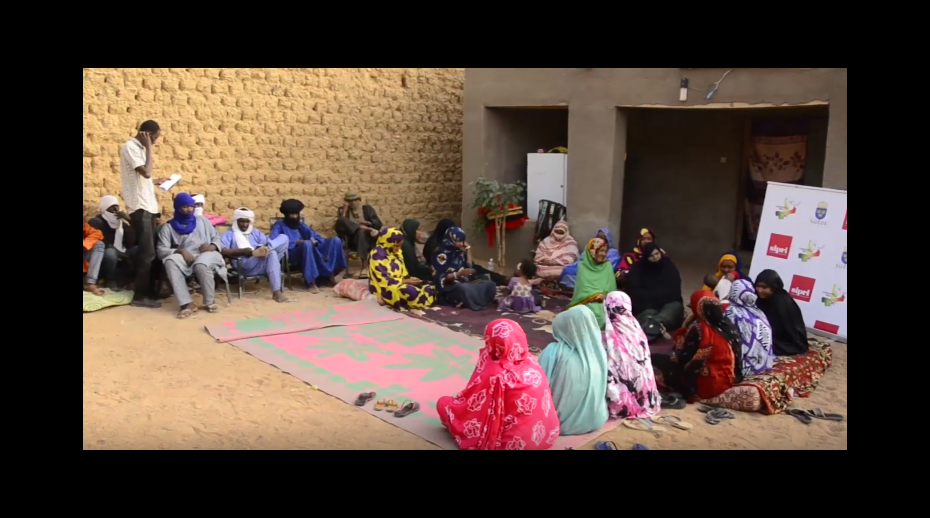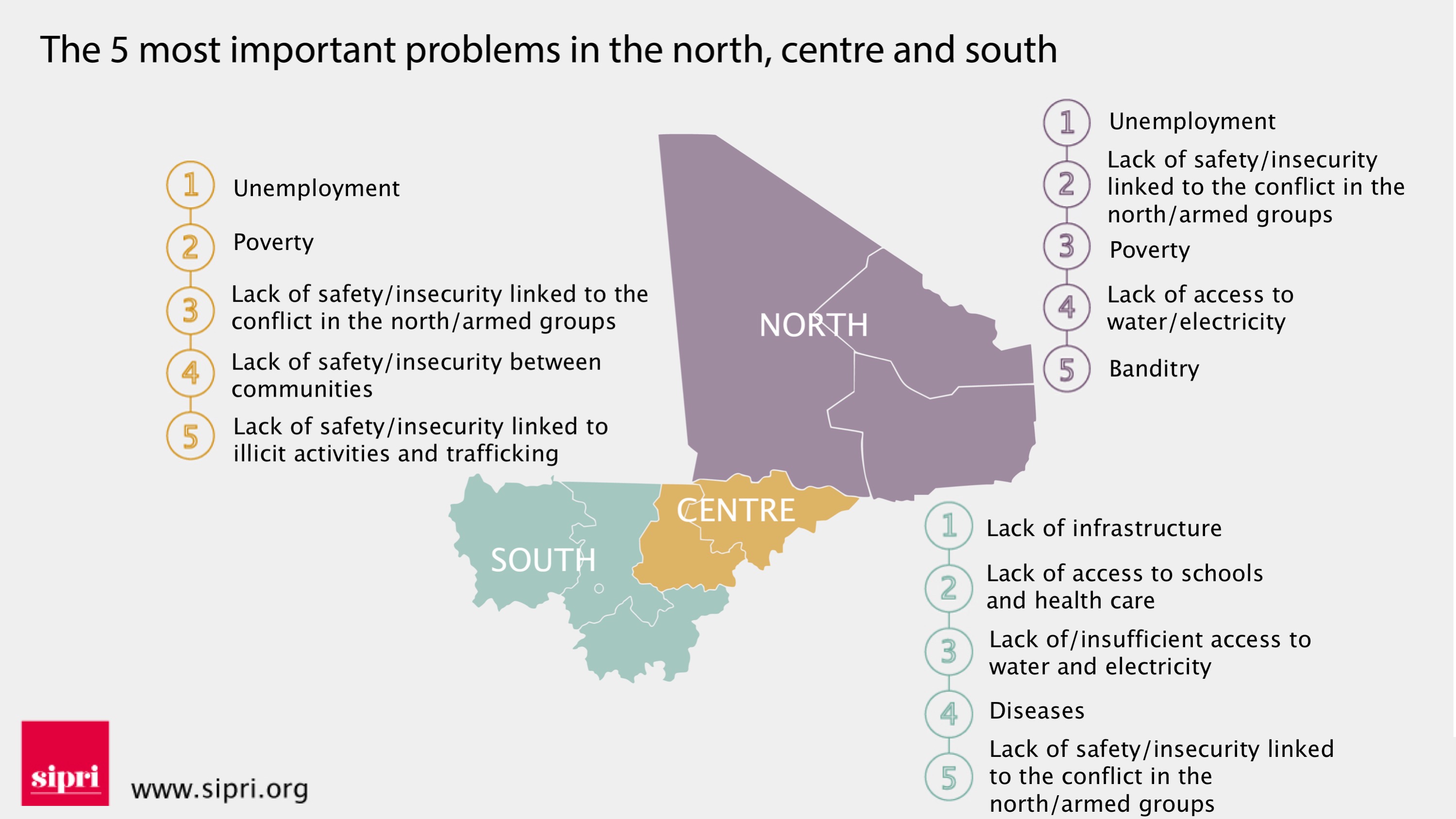
SIPRI is pleased to announce the publication of a new Insights Paper informed by an in depth study on security perceptions in Mali, entitled 'A fresh perspective on security concerns among Malian civil society'.
Read the report in English or French here.
Two years after the signing of a peace agreement in Algiers, and five years after the beginning of the latest security crisis in Mali, the factors of insecurity in the country continue to evolve. The responses of international and national actors have to adapt to this changing reality. They should take into account the wide range of expectations of the Malian population, which is diverse and affected in different ways by insecurity, according to the study.
A developmental definition of security
Civil society actors in Mali define their security priorities in a broad perspective which is not only restricted to protection against violence. Even though the ongoing conflict and presence of armed groups in the country remain key concerns, poverty, unemployment, and access to basic services also play important roles in shaping how men and women define their security needs across Mali.
The findings of the report highlight the necessity for developmental and political responses to insecurity. The current emphasis is on the deployment of troops and the creation of new forces to tackle the security problems of the Sahel; however, the government of Mali and the international community is advised to take into account the priorities expressed by the Malian people, many of whom are calling for softer, longer-term approaches.
Differentiated views on security
Security priorities in the North, Centre and South of the country are not uniform, which supports the call for contextualised responses. Similarly, men and women do not always express the same priorities. The report points out that thereby, national security policies will have to adapt to regional and demographic needs.

Coordination between different levels of actors
The research, conducted by SIPRI and the Malian National Coalition of Civil Society for Peace and the Fight Against the Proliferation of Light Weapons (CONASCIPAL), further highlights the views of civil society actors on the legitimacy and efficiency of the multitude of actors working to address insecurity in Mali. The results of the research show that the definition of security should go beyond the type of security provided by state actors and should encompass a broader role for civil society. The research also demonstrates the demand for international, national and civil society actors to work together more effectively.
The research confirms some of the hypotheses about the current situation in Mali: the crisis area is expanding from the North to the Centre of the country; there is a need for a cross-sectorial approach to insecurity; and there is a need for better coordination between international, national and local level actors.
SIPRI and CONASCIPAL will use the initial findings to define additional areas of research, and work together with Malian academics and civil society to provide further insight into the dynamics of security in Mali.
About the report
This Insights Paper presents the preliminary findings of a research project, conducted by the Stockholm International Peace Research Institute (SIPRI) and the Malian National Coalition of Civil Society for Peace and the Fight Against the Proliferation of Light Weapons (CONASCIPAL), on the perceptions of insecurity of 105 Malian civil society actors. It is based on the responses provided by these actors to questionnaires disseminated in October 2016 on human security in Mali. This study will form the basis of a research project, to be conducted with Malian academics and civil society actors, on the specific dynamics of insecurity in Mali.
The Insights Paper describes how Malian civil society actors define security, and their perceptions of international, national and local responses to date.
For information and interview requests contact Alexandra Manolache (alexandra.manolache@sipri.org, +46 72 203 58 30).